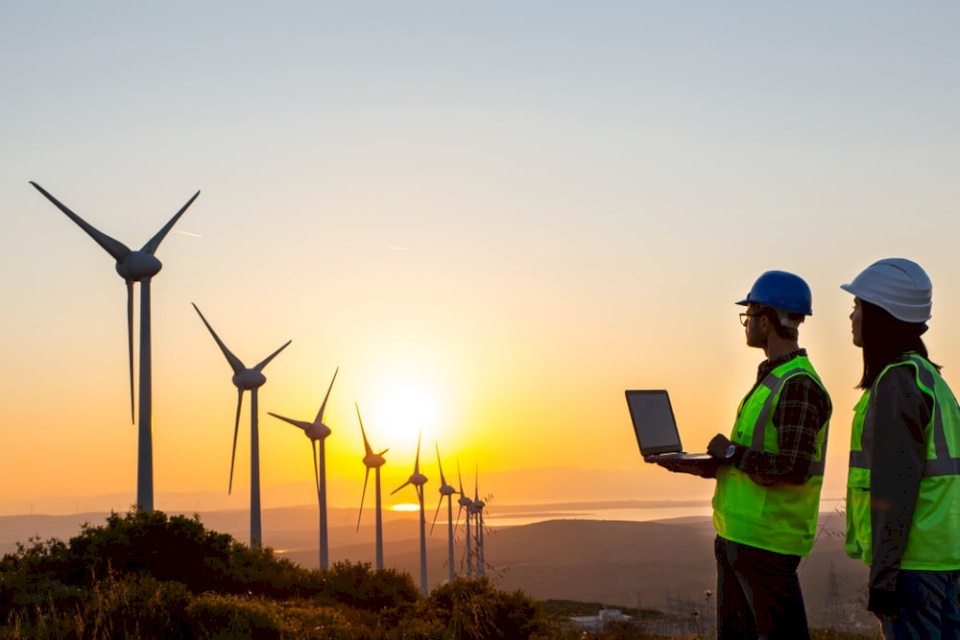
UAE: The World Needs Massive Capital Investments Exceeding $4 Trillion Annually to Meet Energy Needs
SadaNews - The world needs massive capital investments exceeding $4 trillion annually to meet the demands of electricity networks, data centers, and to provide all sources of energy supply, emphasizing that the short-term outlook is certain, while demand for energy in all its forms remains very strong in the long term, according to UAE Minister of Industry and Advanced Technology Sultan Al Jaber.
Al Jaber's statements came during the Abu Dhabi International Petroleum Exhibition and Conference (ADIPEC) 2025 held today, where he stated that the energy sector might face unfavorable factors in the coming months, but long-term forecasts show growth in demand for all forms of energy across all markets.
These statements align with what senior officials in the energy sector have recently echoed, with Amin Nasser, President and CEO of Saudi Aramco, warning of an impending crisis in global oil supplies, citing a decline in investments in exploration and production over the past decade.
In an interview with the Financial Times last October, he stated that the world faces a supply crisis if serious investment is not resumed promptly, confirming that the current level of spending is far too low while global demand for oil continues to grow.
Oil Demand Above 100 Million Barrels
Al Jaber indicated that the ongoing economic expansion and global digital transformation enhance the need for energy, predicting that electricity demand will continue to rise until 2040, during which the energy required to operate data centers will quadruple, alongside 1.5 billion people moving to cities. Additionally, over two billion air conditioning units will become operational during this period.
He added that aviation fuel will also see an increase in demand as the global airline fleet doubles from 25,000 to 50,000 aircraft. As a result of all these developments, demand for oil will remain above 100 million barrels per day after 2040, as it is used more not only for transportation but also for manufacturing materials and petrochemicals.
The UAE minister pointed out that among the challenges the world faces is that energy infrastructure still falls short of needed levels, with a requirement for at least 6 million kilometers of new electricity distribution lines.
Al Jaber stated: "We are not talking about a single pathway for energy transformation, but rather about adding energy from everyone and everywhere."
For his part, UAE Minister of Energy Suhail Al Mazrouei stated that the world needs more energy, which includes oil, gas, and renewable energy alike, emphasizing the importance of ensuring the right investment environment to provide these resources. He mentioned, "If we do not achieve a balance between price and the needs of the world, we will not have enough investment flow to achieve that."
Al Mazrouei warned that if the energy sector does not witness widespread investment, then problems will arise in the future as supplies dwindle.
Balancing Spending with Future Investment
In a related context, Al Jaber stressed the importance of balancing financial discipline with future investment, stating: "We must balance cost discipline and capital investments, focusing on efficiency while we invest in people, technology, and artificial intelligence."
He added that capital is available but requires sound organizational structures to reduce risks and direct funding to the right places. He also highlighted the importance of freeing up idle capital tied to existing energy infrastructure assets, affirming that there are huge opportunities in this regard.
"KKR" and "BlackRock" entered in 2019 with the first foreign investment of its kind in the infrastructure of a government-owned energy company in the Gulf, by purchasing a stake in ADNOC's oil pipelines, before divesting last year from their 40% stake by selling it to the UAE's "Lunit", according to Bloomberg.
The deal comes as part of the trend of national energy companies in the region to attract global capital while maintaining ownership of strategic assets. Similarly, Saudi Aramco signed an $11 billion leasing and leaseback deal for gas processing facilities in the Al Jafurah field with an international consortium led by "Global Infrastructure Partners" associated with "BlackRock" last August.
Warnings about Investment Shortages Amid Rising Energy Demand
The Secretary-General of OPEC, Haitham Al Ghais, stated during a session at the "Russian Energy Week 2025" conference in Moscow last month that the oil and gas sectors need more investments, aligning with forecasts that the world will need 23% more energy compared to current levels by mid-century.
Estimates from the International Energy Agency indicate that the world needs to spend $540 billion annually on oil and gas exploration to maintain production levels until 2050, warning that if new investments are not injected, global supply will decline annually by an amount equivalent to the combined production of Norway and Brazil, which is more than 5 million barrels per day.

In Numbers.. Can the "Digital Euro" Save Europe from the Dominance of American "Visa" and...

$449 million in revenues from the Suez Canal since the beginning of the current year

Gold Holds Above $5,000.. Silver Nears $82

Venezuela Sends First Oil Shipment to Israel After Years of Disruption

Oil Maintains Gains Supported by Tensions in the Middle East

Macron: It is Time for Europe to Find a Common Borrowing Mechanism and Challenge the Dolla...

Gold prices decline amid profit-taking in a volatile market
